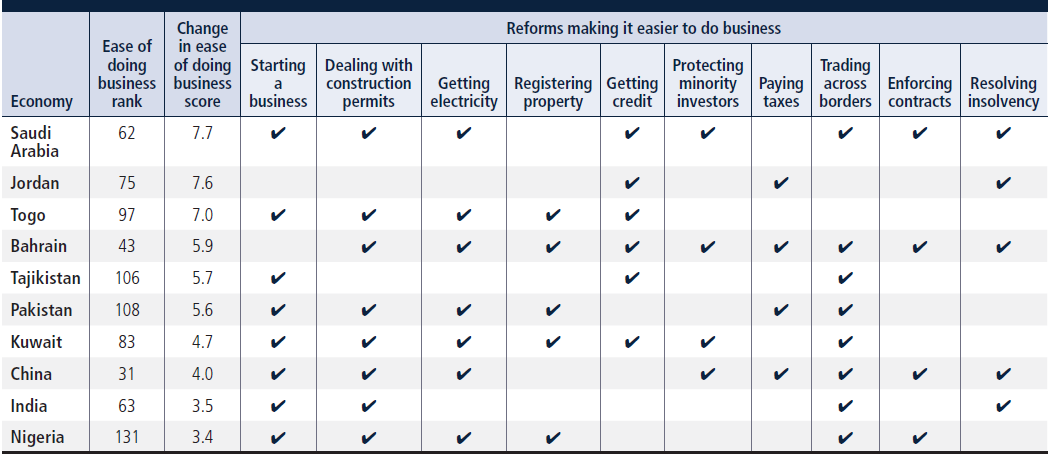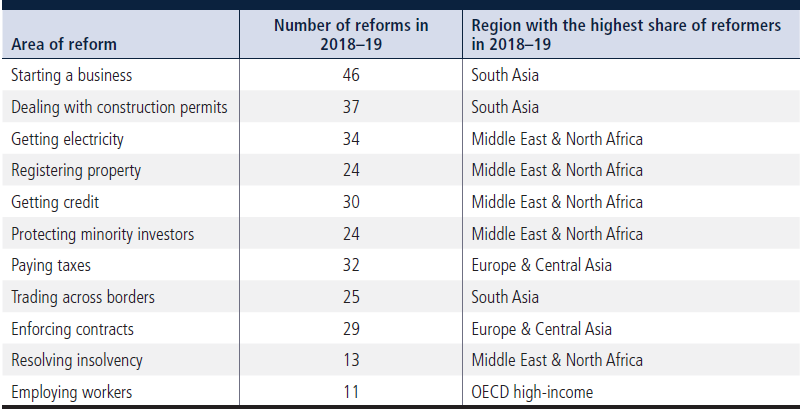Doing Business acknowledges the 10 economies that improved the most on the ease of doing business after implementing regulatory reforms. For Doing Business 2020, the 10 top improvers are Saudi Arabia, Jordan, Togo, Bahrain, Tajikistan, Pakistan, Kuwait, China, India and Nigeria (table 1). These economies implemented a total of 59 regulatory reforms in 2018–19—accounting for one-fifth of all the reforms recorded worldwide. Their efforts focused primarily on the areas of starting a business, dealing with construction permits, and trading across borders.

Note: Economies are selected on the basis of the number of reforms and ranked on how much their ease of doing business score improved. First, Doing Business selects the economies that implemented reforms making it easier to do business in 3 or more of the 10 areas included in this year’s aggregate ease of doing business score. Regulatory changes making it more difficult to do business are subtracted from the number of those making it easier. Second, Doing Business ranks these economies on the increase in their ease of doing business score due to reforms from the previous year (the impact due to changes in income per capita and the lending rate is excluded). The improvement in their score is calculated not by using the data published in 2018 but by using comparable data that capture data revisions and methodology changes when applicable. The choice of the most improved economies is determined by the largest improvements in the ease of doing business score among those with at least three reforms. The order of economies is based on the difference of unrounded scores.
Overall, 115 economies implemented 294 business regulatory reforms across the 10 areas measured by Doing Business in 2018–19. Most of these reforms addressed aspects of starting a business, dealing with construction permits, getting electricity, and paying taxes; the least reformed area was resolving insolvency (table 2). The most common reform features included advancing the functionality of credit bureaus and registries, developing or enhancing online platforms to comply with regulatory requirements, improving the reliability of power supply, reducing certain taxes, strengthening minority investor protections, streamlining property registration processes, and automating international trade logistics. Low-income economies accounted for 11% of all the regulatory changes, with Togo implementing the highest number of reforms (five).

Note: The employing workers reforms are not included in the total reform count. OECD = Organisation for Economic Co-operation and Development.
